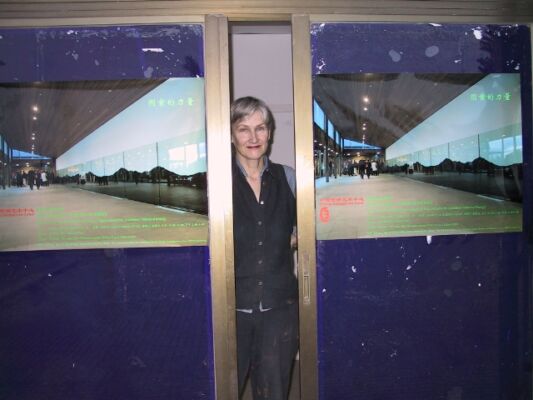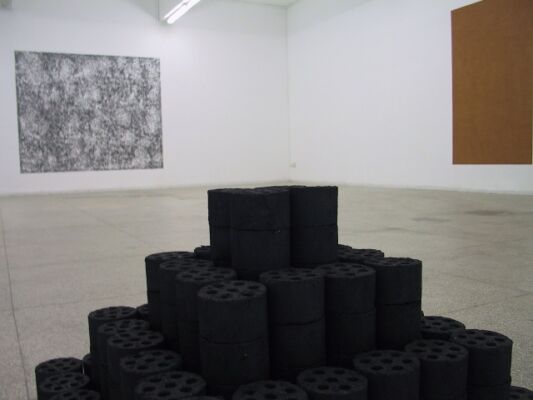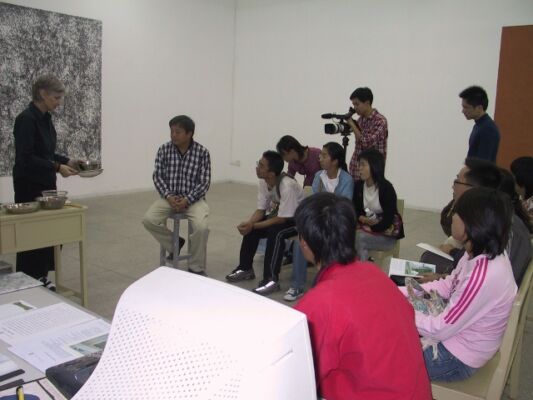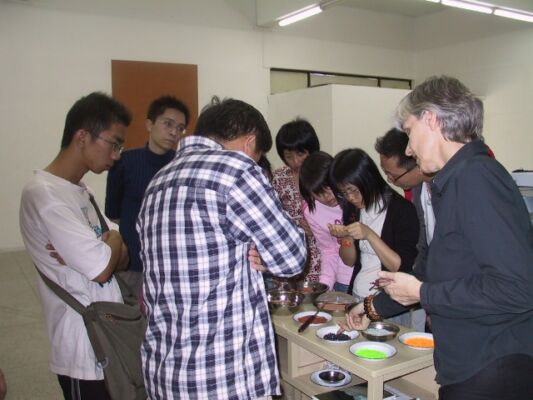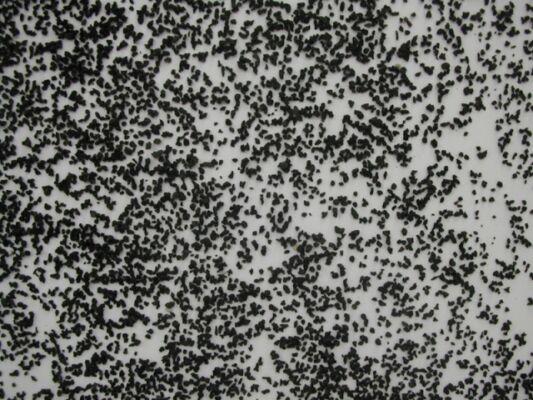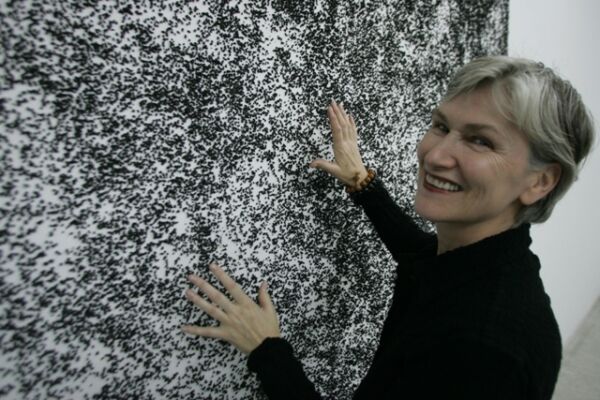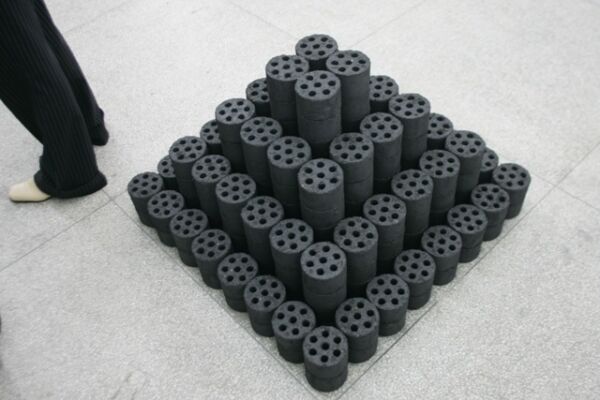Opening
December, 2004
Duration
December, 2004
Location
CEAC, Xiamen, China
Artist
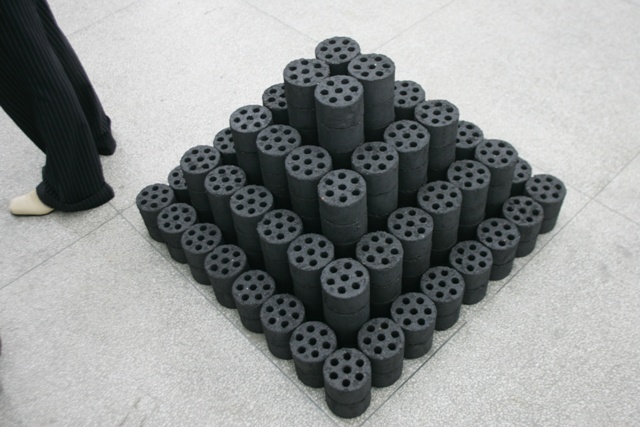 The work of the Reykjavik based artist Ragna Robertsdottir(b.1945) is closely related to the strong tradition of landscape and nature art in Iceland. Hers is an unorthodox approach, using directly natural material and installing it in context with the surrounding architecture. Thus, she borders in some ways on Minimalism and Land art.
The work of the Reykjavik based artist Ragna Robertsdottir(b.1945) is closely related to the strong tradition of landscape and nature art in Iceland. Hers is an unorthodox approach, using directly natural material and installing it in context with the surrounding architecture. Thus, she borders in some ways on Minimalism and Land art.
In her early works she used ” cutouts” from nature, installed as floor pieces e.g.blocks of basalt, rolls of soil and piles of hemp. She also used rubber, but in a limited way, together with the natural material.
In the last decade and currently still, she has been focusing on walls(and sometimes ceilings) working with black lava, red pumice and shining obsidian. Also in this case she sometimes uses artificial material such as crushed glass or multicoloured Plexiglas.
She either attaches the material directly on the wall, taking the surroundings carefully in consideration, or she frames it loose behind glass. The method is an interesting mix of intention and chance. Working on a precisely given part of the interior of the exhibition space she throws handfuls of the grinded material, which then partly sticks on glue, but the rest falls down on the floor. Then, with cosmetic tweezers, she adds and takes away isolated particles to complete the work. The result
looks monochrome when seen sideways but from a direct viewpoint there are
clouds, lines and a structure resembling a drawing.
When using volcanic material such as from the eruptions of Iceland’s most
active volcano, Hekla, Ragna’s works are quite direct landscape works.
When using glass, the sparkling surface reminds one of glacial surfaces,
also closely inspired by the land’s nature. These wall works are somewhat
related to the tradition of protecting the exterior of concrete houses with
grinded crystal, lava or shells. A big part of 30’s and 40’s Reykjavik is
full of these houses, not to mention the shining, black National Theatre,
covered with glistening obsidian. Therefore one can say Ragna’s art is
very Icelandic though doubtlessly inspired by international art movements.

